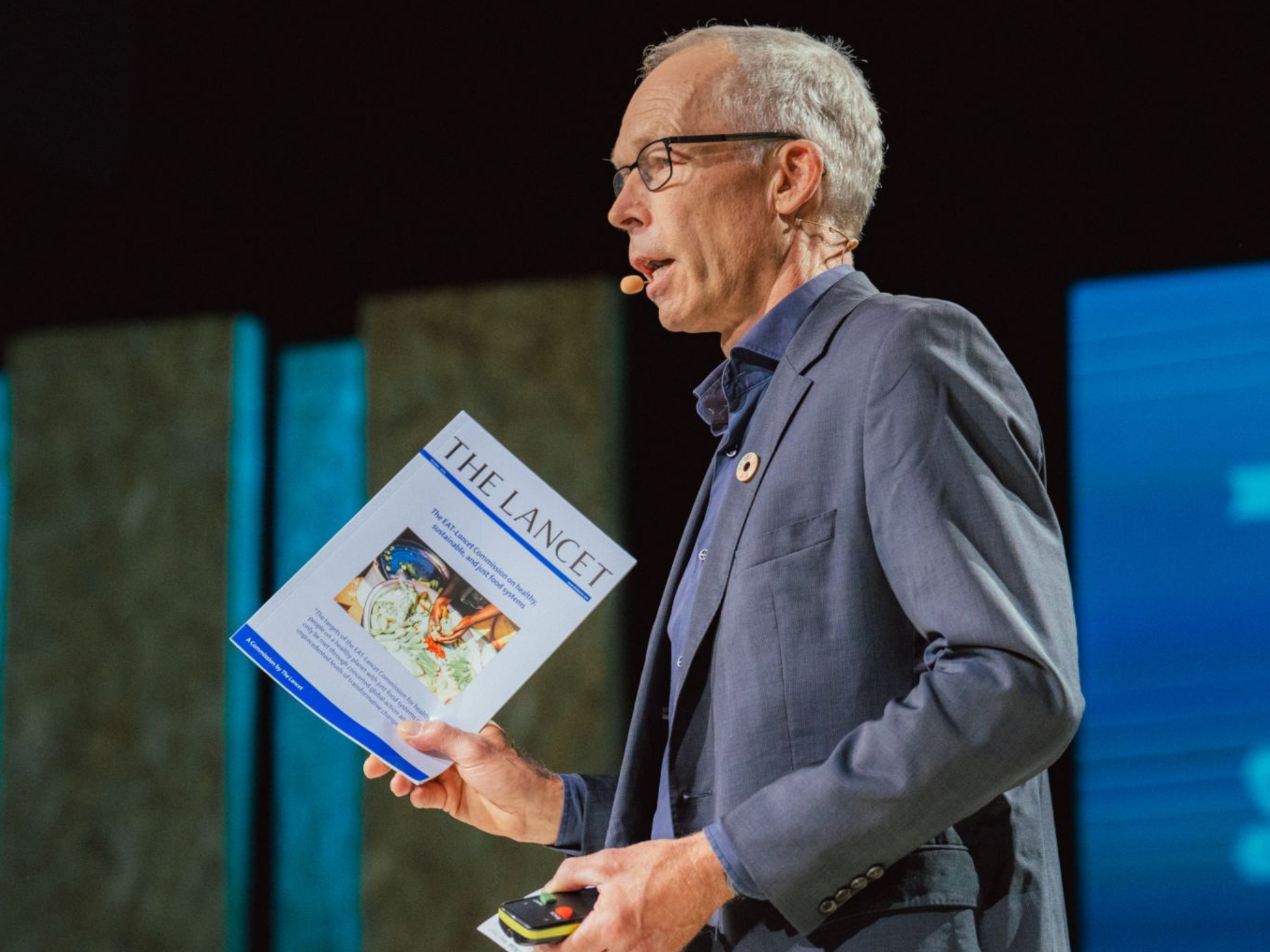
As reactions pour in to the Eat-Lancet Commission’s updated report on the future of food systems, calls for businesses and governments to take action appear to be a common thread.
A landmark report reinforcing the potential of plant-rich diets to improve public health, planetary wellbeing, and food justice has prompted cautiously optimistic reactions from experts across the world.
The Eat-Lancet Commission’s 2.0 report, released last week, stated that the Planetary Health Diet could prevent 27% of early deaths from happening globally, reduce emissions by over a third with supportive policies, and lower the amount people spend on food.
Currently, less than 1% of the population is in a “safe and just space”, where their rights and food needs are met within planetary boundaries. And the richest 30% of people drive over 70% of food-related environmental impacts.
So things need to shift fast and hard across the food system, from the supply chain to policymaking. That’s the consensus of leading food and climate experts across the world.
‘Still work to do,’ notes Proveg leader Jasmijn de Boo
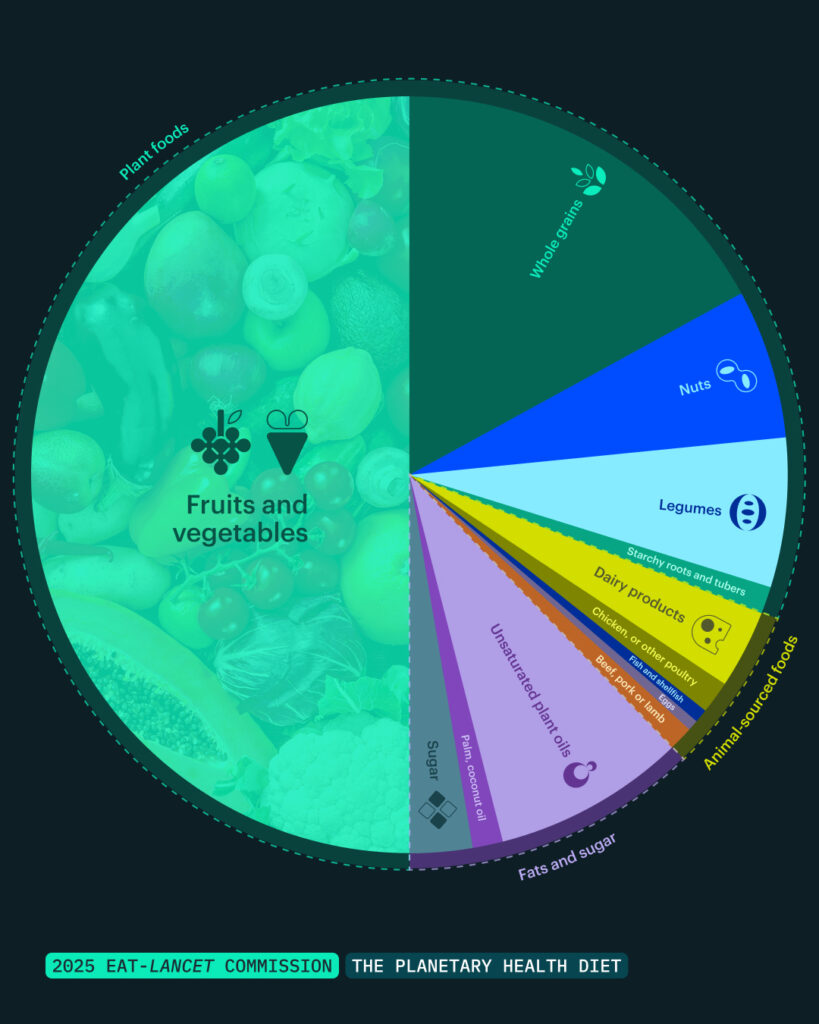
“Whilst we warmly welcome the latest update to the Planetary Health Diet, it is clear there is still much work to be done to ensure countries incorporate the recommendations of this diet into their national dietary guidelines together with an effective implementation strategy,” said Jasmijn de Boo, global CEO of ProVeg International.
She noted that food environments can be shaped in many ways beyond just dietary guidelines to help make healthy and sustainable choices much easier.
“For example, the Protein Tracker in the Netherlands, which is guided by the Planetary Health Diet, sets targets for retailers to increase the amount of plant-based protein on their shelves. We also see, in the UK, the School Plates programme that has introduced more plant-based foods into schools,” she said.
“So the implementation of the Planetary Health Diet requires policymakers, business and society to work together.”
‘We need a new tone,’ argues food policy expert Jack A Bobo
“For too long, food system change has been framed as sacrifice – less choice, less prosperity, less future. That narrative doesn’t inspire action; it fuels apathy,” wrote Jack A Bobo, executive director of the Rothman Family Institute for Studies at UCLA, and a former senior advisor for global food policy at the US Department of State.
“We need a new tone,” he remarked. “Stop asking people to sacrifice for the future, start asking them to embrace it. Stop leading with fear, start leading with hope. Stop dividing people, start inviting them in.”
‘Puts people front and centre,’ enthuses law professor Chris Hildon
Chris Hilson, a professor of law at the University of Reading, said the report stood out for its focus on fairness. “At a time when expert advice often gets dismissed as out of touch, it puts people front and centre,” he noted.
“When we talk about tackling climate change, most people think about switching from coal and oil to wind and solar power. But this report shows that what we eat is just as vital,” he added.
“Any changes to how we grow and eat food must ensure farmers can make a decent living, everyone can afford nutritious meals, and no communities get left behind.”
‘The real work isn’t political; it’s cultural,” suggests food futurist Mike Lee
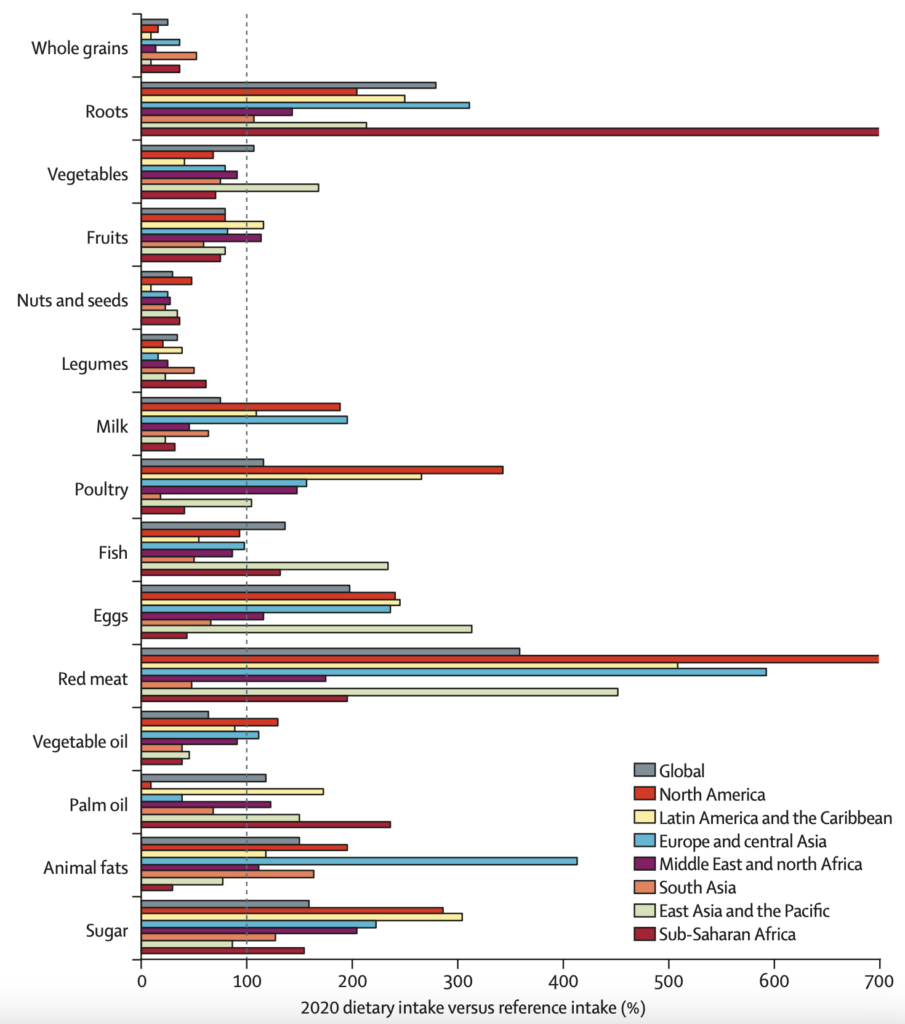
“The Commission got the science right and the humans completely wrong,” argued Mike Lee, a food futurist and author. “We keep trying to convince people with carbon footprints and sustainability metrics when the actual battle is against Frito-Lay scientists who’ve spent decades perfecting the exact crunch-to-salt ratio that triggers compulsive snacking.”
“You can’t tax people into wanting vegetables. Denmark tried – their fat tax worked, cutting saturated fat consumption by 10-15%, then got killed after 15 months because it became politically toxic,” he added. “The real work isn’t policy. It’s culinary. It’s cultural.”
“We need the same maniacal, obsessive rigour applied to lentils that goes into engineering Cheetos. Until brown rice and legumes can compete with products scientifically designed to be irresistible, your climate impact stays at zero.”
‘Supermarkets need to act,’ highlights Madre Brava co-founder Nico Muzi
Nico Muzi, co-founder and chief programmes officer of Madre Brava, highlighted that the report made it “crystal clear” that we need to eat more plants and cut back on meat, dairy, sugar and salt.
“The plant-rich diet proposed is very flexible, allowing it to be adapted to local tastes and cultural norms, and is more affordable than current unhealthy and unsustainable diets,” he said.
“We now need supermarket giants, who largely determine what food is produced and how it is produced, to act and support consumers in making healthy, sustainable, affordable food choices in line with the Planetary Health Diet.”
‘The challenge is scaling what works,’ remarks WRI director Anne Border
“The report drives home a vital truth: healthy, sustainable eating isn’t just a personal choice – it’s shaped by the systems that put food on our plates every day,” said Anne Bordier, director of food initiatives at the World Resources Institute.
“It’s the responsibility of food providers and policymakers to make healthy diets with a low carbon footprint the easy, affordable, and irresistible option for all.
“Meeting climate and nutrition goals won’t happen overnight. It takes smart investment, persistence, creativity and real collaboration,” she added. “The challenge now is scaling what works – making healthy, sustainable food the default, not the exception.”
‘An improvement on the 2019 Eat-Lancet report,’ observes nutrition lecturer Dr Anne Mullen
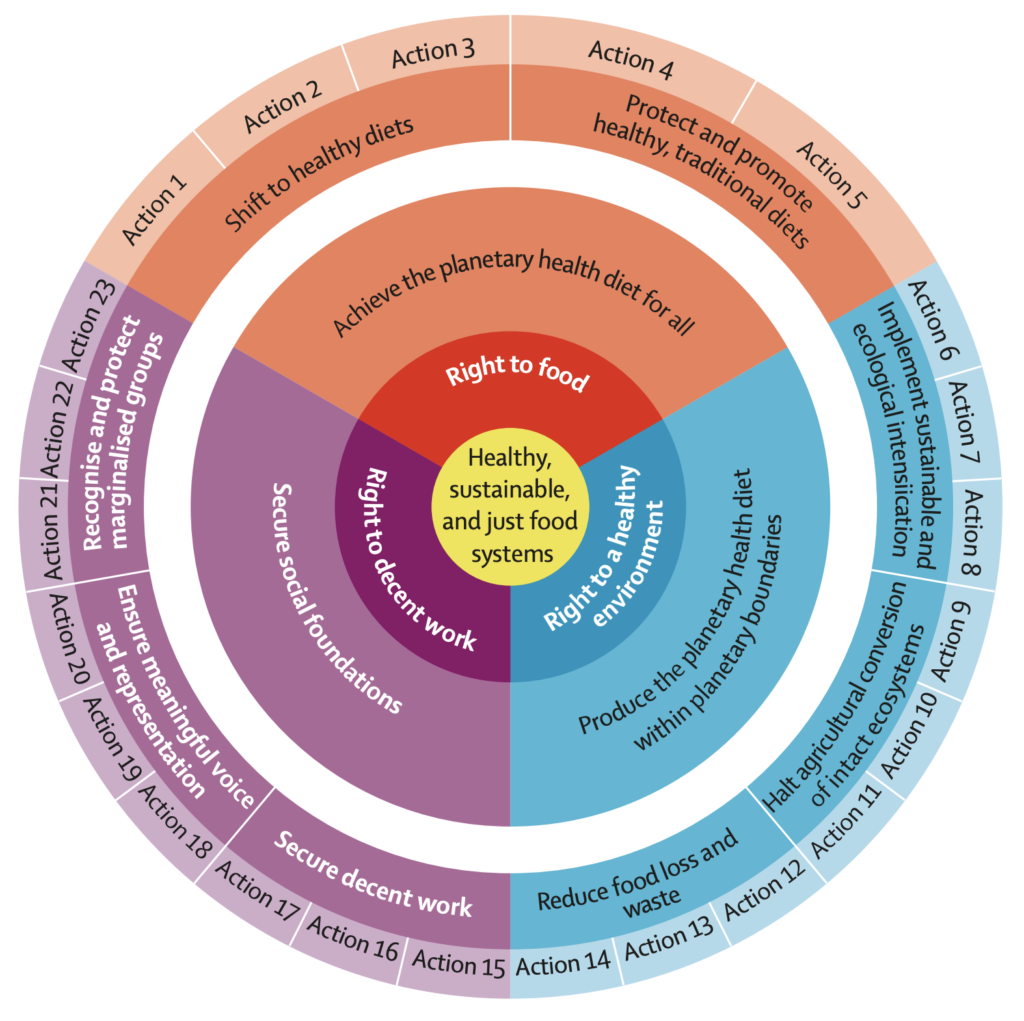
Dr Anne Mullen, a lecturer in nutrition security and sustainable food systems at the University of Galway, said the original report (published in 2019) raised many questions about justice and equity, and whether a shift towards the Planetary Health Diet was feasible across the world.
“This time round, Eat Lancet 2.0 doubles down with its agenda for human and planetary health – providing a high level of robust science to support the Planetary Health Diet,” she noted.
“The adoption of this diet will remain controversial, no doubt, in terms of its feasibility. But the report hits really strong notes in addressing some of the previous criticisms. It includes a much-needed focus on justice and human rights related to food systems, clarity on the nature of plant-based foods, and emphasis on the importance of food environments that promote healthy diets.”
‘A step in the right dietary direction,’ declares The Vegan Society dietitian Emily Angus
The Vegan Society welcomed the report and called its recognition “that a vegan diet is a healthy and environmentally sustainable one” a key message.
“The most authoritative expert body on global diet has affirmed that we must eat much more fruit, vegetables and other plant-based foods and less meat in order to save the planet and protect our health,” said Emily Angus, a senior dietitian at the charity.
“The Vegan Society believes meat, dairy and fish must be off the plate completely and replaced by a healthy, balanced, plant-based diet but, nevertheless, the 2025 Eat-Lancet Commission report is a further step in the right dietary direction,” she added. “Nothing is more important for the health of our planet and its population than good food.”
‘Dietary change isn’t enough,’ says British Nutrition Foundation’s Sara Stanner
Sara Stanner, science director at the British Nutrition Foundation, echoed the Eat-Lancet Commission’s call for a multi-level transformation of the food system.
“Changing what’s on our plates isn’t enough – we also need more sustainable agricultural production and to dramatically reduce food waste, so innovation is likely to be a key part of the solution,” she said.
However, she contested one key aspect of the report. “An important question to consider is whether the promotion of traditional diets, as encouraged by Eat-Lancet 2.0, can truly fit within a rapidly changing world – one in which women are playing an increasingly central role in the workforce,” noted Stanner.
“Also, what policies and initiatives for manufacturers, retailers and the out-of-home sector are likely to be most effective at achieving change at the pace and scale we need?”
‘Watch out for the meat industry,’ warns Changing Markets CEO Nusa Urbancic
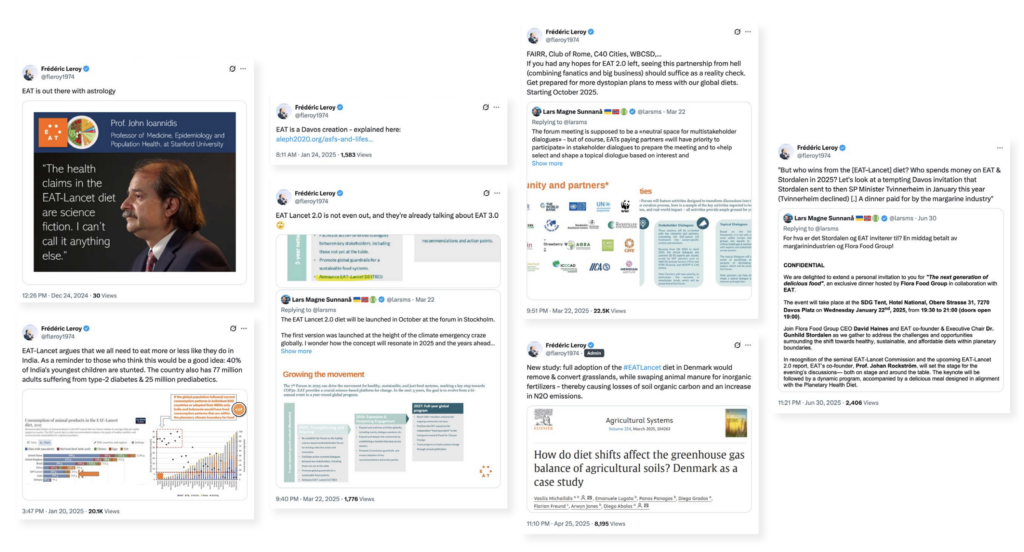
Ahead of the report’s launch, the Changing Markets Foundation published an investigation highlighting the livestock lobby’s efforts to undermine the original Eat-Lancet document. It showed that industry-linked influencers had already begun planting the seeds to discredit the 2.0 report.
According to its CEO, Nusa Urbancic, the new findings display the “clear scientific message the meat industry does not want you to hear, so there will be attempts to attack the findings”.
“The meat industry has been planning to mount a communications campaign relying on identity politics and online influencers, modelled on the backlash against [the] 2019 Eat-Lancet report that managed to sway undecided audiences,” she said.
“With the backsliding of content moderation on social media platforms and the rise of far-right opinion leaders, manosphere [sic] pushing [the] popularity of carnivorous diets and protein obsession, this is something we should all keep an eye on.”
The post Food & Climate Experts React to Landmark Eat-Lancet 2.0 Report appeared first on Green Queen.
This post was originally published on Green Queen.